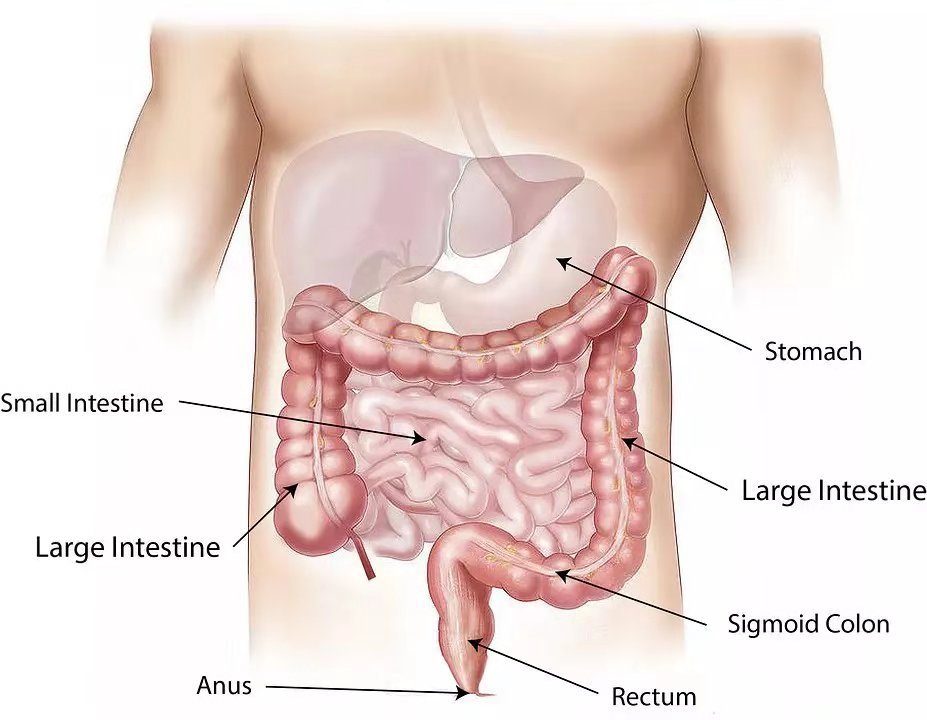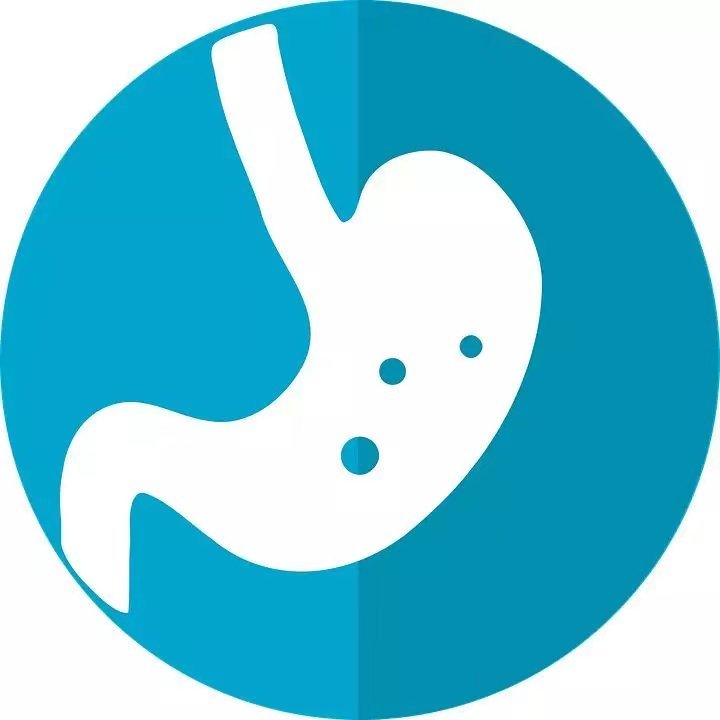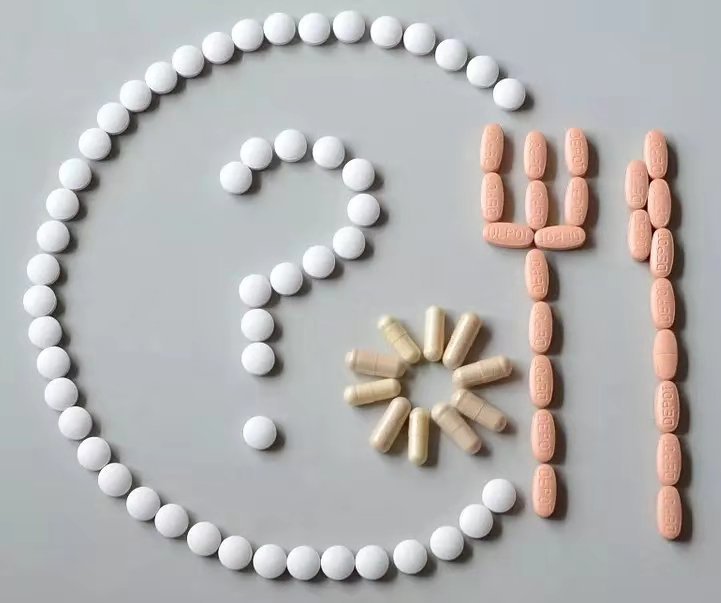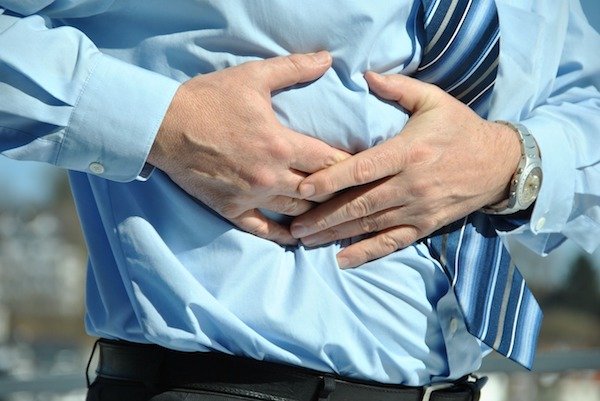November is Stomach Cancer Awareness month. Beijing United Family Hospital’s UK Gastroenterologist Dr Neil Galletly talks more about the disease and looks at ways we can prevent stomach cancer and keep our stomachs healthy.

Stomach cancer is one of the top four most common cancers worldwide and is a significant problem in China. The estimated 5-year survival rate for stomach cancer is less than 30%. If diagnosed at an early stage, the chances of a successful cure are improved, and so early detection is very important.
What can you do to reduce your risk of stomach cancer?
Cancer prevention – for any cancer – is about taking actions to reduce the risk of developing cancer. This usually means implementing changes to your diet or lifestyle. It can include avoiding and eliminating risk factors (ie. things known to increase the risk of cancer) and increasing exposure to protective factors (ie. things known to reduce the risk of cancer). Although avoiding risk factors and increasing protective factors does not guarantee that you will not get cancer, it should lower your risk.

Taking the following actions should reduce your risk of stomach cancer:
Treating H pylori infection
Helicobacter pylori (H pylori or Hp) is a bacteria that colonizes the lining of the stomach. H pylori is particularly prevalent in China. It is often picked up in childhood and survives in the acidic environment of the stomach for many years. It will often cause no symptoms although it may cause dyspepsia and indigestion. Long-term infection with H pylori can cause the stomach to become inflamed (gastritis) and cause changes in the cells that line the stomach. Over time, these cells become abnormal and may become cancerous. It is estimated that 78 percent of all stomach cancers are attributable to H pylori infection. Chronic H pylori infection can also cause peptic ulcers and gastric lymphoma.
Studies show that successfully treating H pylori infection with antibiotics lowers the risk of developing stomach cancer. Ideally, the infection should be treated in early adulthood before changes in the cells lining the stomach have started to occur. H pylori can be resistant to a number of antibiotics so most courses of treatment involve taking four different medications for a two-week course. Even the best courses of combination therapy have only a 90 percent success rate at eradicating the infection so it is good advice to have a repeat test for H pylori a month or so after completing a course of treatment.

H pylori infection can be detected either by a special breath test, a stool test or at gastroscopy. A blood test that looks for antibodies to H pylori can also be used, however, this is less useful as a positive result can mean either that you are infected with H pylori or that you had an infection in the past that is now cleared.
All of these tests, together with H pylori treatment, are available at the Digestive Disease Center at Beijing United Family Hospitals.
Stopping smoking
We all know that smoking is bad for us! Smokers have a two-fold increased risk of developing stomach cancer and stopping smoking reduces the risk of stomach cancer over time. Smoking also increases the risk for many other types of cancer, heart disease, chronic lung disease, and stroke.
Losing weight
Being overweight or obese increases the risk of stomach cancer. On the other hand, being physically active can help lower your risk. Obesity also increases the risk for many other types of cancer, heart disease, and diabetes. The American Cancer Society recommends staying at a healthy weight throughout life by balancing calorie intake with physical activity.
Cutting back on salted, smoked and pickled foods
A high intake of salted, pickled and smoked food can increase your risk of stomach cancer.

Increasing intake of fresh fruits and vegetables
A diet high in fresh fruits and vegetables can lower stomach cancer risk. Citrus fruits which are high in vitamin C (such as oranges, lemons, pomelos, and grapefruit) may be especially helpful. It is recommended to try to eat three to five portions of fresh fruit or vegetables per day. Some studies have also shown that whole-grain cereals, carotenoids, green tea, and substances found in garlic may lower the risk of stomach cancer although other studies have not shown a benefit.
Dietary supplements
Some studies from China have suggested that combinations of antioxidant supplements (vitamins A, C, and E and the mineral selenium) might reduce the risk of stomach cancer in people with poor nutrition. But most studies looking at people who have good nutrition have not found any benefit to adding vitamin pills to their diet and further research in this area is needed.

However, some risk factors cannot be avoided. It is important to know about these so that you are aware of the things that may put you at risk of stomach cancer. These unavoidable risks include:
- Age: Stomach cancer (and a number of other cancers) are more common above the age of 50
- Sex: Men are roughly twice as likely as women to be diagnosed with stomach cancer
- Type A blood group: People with type A blood have a slightly higher risk of stomach cancer compared with people with other blood groups
- Family History: Most cases of stomach cancer occur without a family history but approximately 10 percent of cases are clustered within families. It is important to speak with your doctor if you have a family history of stomach cancer in a close family member or more than 1 case in the same family. A strong family history of lobular breast cancer may also increase your risk
- Ethnicity: Stomach cancer is more common in people from an East Asian background (Chinese, Japanese, Korean)
- Previous gastric surgery
- Pernicious anemia (anemia caused by low levels of vitamin B12)

Screening for Stomach Cancer
Cancer screening is a way of testing healthy people before they develop symptoms to help detect cancer at an early stage. Unlike colon, breast and cervical cancer, very few countries (with the exception of Japan and South Korea) have population screening programs for stomach cancer. If you have risk factors (see above), speak to a gastroenterologist or your family medicine doctor about whether or not you would benefit from regular endoscopic checks for stomach cancer screening.
Stomach Cancer Signs and Symptoms
Early stage stomach cancer rarely causes symptoms, making early detection very difficult. Stomach cancer may present with vague gastrointestinal symptoms or may mimic other conditions, such as GERD, gastritis or peptic ulcer.
Signs and symptoms of stomach cancer can include:
- Sense of fullness after eating small amounts
- Discomfort or pain in the upper abdomen
- Nausea and vomiting and/or bloating after meals
- Loss of appetite and/or unexplained weight loss
- Indigestion, heartburn or difficulty swallowing
- Vomiting blood or blood in the stool
- Weakness and fatigue
Most of these symptoms may be caused by things other than stomach cancer. However, don’t ignore your symptoms. If you see blood or if you have these symptoms for more than two or three weeks (especially if they are getting worse), you should see a Gastroenterologist or your Family Medicine doctor for further investigation.
Further information:
American Cancer Society
NIH National Cancer Institute
No Stomach For Cancer

Dr. Neil Galletly is BJU’s new gastroenterologist. To make an appointment with him, call the BJU service center at 4008 919 191.
This post is provided by Beijing United Family Hospital
Photos: Pixabay, courtesy of Beijing United Family Hospital




